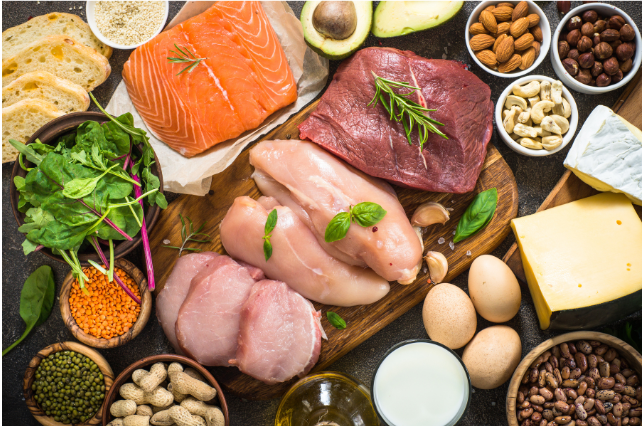Our Dietitian, Maddi Parsons has recently seen a growing number of women seeking dietary assistance to help them overcome low iron levels, and in more extreme cases – Iron Deficiency Anaemia (IDA).
Common symptoms include extreme fatigue, low energy, and even light headedness and episodes of dizziness.
Low iron levels also impede your ability to recover from injury!
Maddi is such a valuable member of our team, because she offers far more than just weight loss advice.
Read on for an example of how Maddi can offer a simplified solution to an extremely complex cause of a specific dietary deficiency.
As you’re about to find out, there’s a lot more to bringing iron levels back up to normal than just following the typical advice of “eat more red meat, and take an iron supplement”.
It goes so much deeper than that.
Let’s dive in.
The Key Stat
Iron deficiency affects 29.9% of women under 50. Yet Iron is the most common mineral found in soil all over the world. This begs the question – if Iron is so widely available, why do so many women have low Iron levels?
The standard advice doesn’t work
The most commonly prescribed treatment is to take an iron supplement and eat more red meat. But why are we told to take a supplement if it is so abundant in the food we eat? And if Iron supplements work, why do almost 1 in 3 women still suffer from Iron deficiency?
It’s all about Absorption
The reason isn’t a lack of Iron in the diet. It’s a lack of absorption of Iron by our bodies when it hits our digestive tract.
We only absorb about 10% of the iron we ingest. Because of this, to restore Iron levels we need to switch our focus to optimising absorption.
By manipulating our diet, we can overcome the barriers to Iron absorption.
There are a lot of factors to be considered when navigating our way through the maze of a typical diet to reach our goal of normal iron levels. But there is a way. A better way.
The Top 3 factors involved in Iron absorption
1. Hepcidin
The sergeant, the head honcho, the Gandalf of Iron absorption. Call it what you will, this hormone released by the liver stands up tall to Iron and says, “you shall not pass!”.
When Iron is absorbed, Hepcidin levels rise and take a couple of days to normalise.
This means that if you take iron supplements or consume Iron-rich foods every day, your Hepcidin levels will rise and decrease the absorption of the Iron! Annoying right?
There are so many things that play a role in influencing Hepcidin’s “powers”. However, it isn’t all bad. It’s merely misunderstood. After all, it prevents us from having too much Iron in our blood which can also be harmful to our health.
Top Tip: Take your Iron supplement, or ingest iron-rich food every second day to maximise absorption.
2. Essential Minerals
Minerals like Magnesium, Calcium, Zinc and Copper compete with Iron for absorption in our bodies. This means if these other minerals are present, Iron is the last in line to be absorbed.
Our bodies can only take in so many minerals at one time or in a single meal. In other words – there are only so many seats on the essential mineral bus. If the bus is full, Iron, will unfortunately, miss out!
Top Tip: Taking a multivitamin that contains several essential minerals, along with extra iron, will not work!
3. Vitamin C
Vitamin C improves iron absorption. Vitamin C-rich foods include: oranges, kiwi fruit, red capsicum, strawberries, tomatoes, broccoli and brussel sprouts.
Top tip: Try pairing your Iron-rich foods with Vitamin C-rich foods for maximum absorption. This is especially important for plant-based Iron-rich foods as Vitamin C transforms Iron into a more soluble, easily digestible form.
But wait. There’s more!
There are some other heavy hitters that play an important role in Iron absorption. Some increase absorption, some work against it. These include:
1. Hormones (estrogen and testosterone)
2. Exercise
3. Calcium
4. Vitamin D
5. Phytic Acid
6. Oxalates
7. Protein
8. Carbohydrates
9. Tannins
10. Gut health
So there you have it, the multifaceted, complex and confusing world of Iron Deficiency. As you can see, treating and preventing Iron deficiency goes well beyond taking a supplement and eating more red meat.
There are so many considerations that come into play when optimising Iron levels in the body and taking an Iron supplement may well be treating the symptom and not the cause.
Disclaimer: This information is for educational purposes and should not replace professional medical advice.

